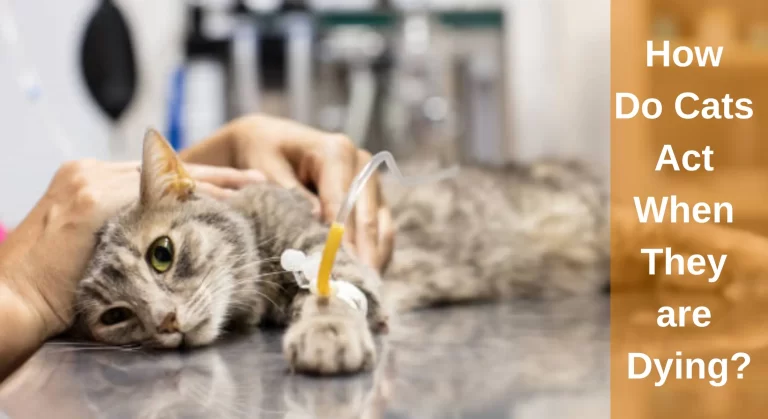Cat Keeps Shaking Head But Has No Mites: Why And What to Do?
One of the traits cat owners wish their cats had when they’re sick is the ability to speak. You could address the problem with your cat’s health much more swiftly if he could just convey the particular location of his body that hurts, how long it has been hurting, and how much it hurts. It might be a little injury like a scratch inside the ear or a serious condition like an infection.
They almost probably have an ear problem if they shake their head, which indicates that. This might range from minor injuries they may have sustained in an outside altercation to more significant problems like growths and deep infections.
I’m going to look at most of the typical ear problems in this post that can make cats shake their heads.
Why Does My Cat Keep Shaking Her Head?

A clue that your cat is bothered by anything is if they frequently shake their heads, hold their heads tilted, or claw at their ears. Cats’ sensitive ears make them particularly vulnerable to ear infections, which may be very unpleasant and painful.
One of the more frequent causes of cat ear infections is ear mites. However, the following are a few possible causes:
1. Medial Otitis
Even though ear infections are less common in cats than dogs, they might be why your cat is head-shaking. Ear infections can be caused by bacteria or yeast. By migrating some fungus or bacterial infection further into the ear canal, they can produce more severe symptoms such as balance problems in addition to being painful and itchy. In medial otitis, an unpleasant odour comes; you may also see brown or yellowish discharge coming from the ear.
Antibiotics in the form of drops are recommended in case of ear infection purely based on which bacterial organisms are causing this. Your veterinarian may take a sample for microscopic inspection or send one to an expert lab.
Find Out: Should I Quarantine My Cat With Tapeworms
2. Auditory Hematoma
When microscopic blood vessels inside the ear cartilage burst, the blood-filled cartilage swells and becomes an auditory hematoma. A cat with an auditory hematoma will feel as though it is full of fluid when you gently press the ear pinna, and it will seem bloated and balloon-like.
Aural hematomas are typically caused by prolonged head shaking or scratching; however, they can also form after trauma. Once a hematoma forms, the ear canal shrinks, trapping any infection. The bacteria will thrive in the moist, insufficiently ventilated environment, which will worsen your poor cat’s misery, itching, and discomfort.
Drainage is usually necessary for aural hematomas. Anaesthesia is given to a cat while a vet removes the blood with a blade or needle. But occasionally, after draining, the ear can re-fill with blood, requiring either a surgical procedure or a semi-permanent drain. Unusually, some veterinarians have lately started using leeches to treat auditory hematomas!
3. Polyps
Nasopharyngeal polyps, also known as polyps are benign growths that develop in the outer, middle ear and Eustachian tubes of cats. Cat health can be adversely affected if it is not properly diagnosed and treated as soon as possible.
It might be more difficult than you might think to locate a polyp in your cat’s ear. But usually, they are found in the ear canal. Your veterinarian may thus need to do a CT scan or perhaps x-rays to discover it. Once discovered, polyps can be surgically removed using some techniques.
4. Outer Ear Infections
At first glance, it can be difficult to distinguish between outer ear infections and ear mites. However, if you look closely, you will notice there is a difference, Ear infections cause inflammation and redness in the affected area. There can be an unpleasant odour in the discharge.
An outer ear infection can be treated easily if your cat has one. The vet will diagnose what is causing the infection and prescribe the appropriate treatment after examining the ear canal. Aside from cleaning their ears, they will usually trim their fur to prevent recurrences.
5. Injuries
Ear injury is one of the most likely remedies to our problem for cats who live outside. Cats who merely venture outside and explore risk easily damaging their ears. For instance, an abrasive surface or prickly plant might produce mild skin stinging and discomfort.
Particularly possessive animals include cats. If another cat enters your cat’s territory and starts acting aggressively, do not be surprised. The battle is successfully over without any significant injuries. Cat bites and scratches, though, might occasionally be more serious. Cats might develop polyps in the centre of their ear or on the back of their neck. Although they can cause infection or inflammation, these soft tissue growths are frequently benign rather than cancerous.
Although it’s rare, your cat could shake their head if they have a foreign object within. Hairs, tiny seeds, and other vegetation can restrict the ear canal, which itches and irritates the ear.
6. Foreign Bodies
It is possible to infect your cat with an infection if an object gets stuck in his ear. Your cat can become uncomfortable even if even a small bug falls inside. Due to their straight ears, cats’ ears are very easy to get into with grass, dirt, small stones, and even a little bug.
Try examining your cat’s ear with a flashlight if he is shaking his head. However, it is not recommended to remove the object by yourself. Because of the sensitive nature of a cat’s ear, you should always seek help from a professional. The worst thing that might happen is that you will do more harm than good.
The removal of foreign objects is commonly done while the cat is asleep. Your veterinarian may be able to view the grass seed or other foreign object in your cat’s ear using a special ear scope.
7. Allergies
Many cats develop allergic responses, just like people do. They can manifest as allergies to other cats, grass, pollen, mildew, or even cat litter, among other things. Coming into contact with some allergens may irritate the skin around your cat’s ears and face. Bites from fleas and other insects can also result in itchy, inflamed skin brought on by an allergic reaction.
Cats commonly shake their heads to try to get rid of this intense itching. Even though the skin may seem red and irritated, you won’t experience any of the additional symptoms I’ve already covered, such as unpleasant discharge or an abundance of ear wax. The other ear-related illnesses on this list and allergies can be easily distinguished from one another as a result.
What Further Symptoms May Your Cat Show?

You may notice that your cat is clawing at its ears with its rear legs if it has an ear infection, ear mites, or other issues. Even if your cat is quite covert, you’ll be able to tell if they’ve been scratching if the backs of their ears seem slightly bald.
They may tilt their heads to one side, lose their balance unexpectedly, or appear a little tipsy and unsteady if they have an infection of the middle or inner ear or a polyp deep in their ear canal.
You could also notice that their pupils change size or that their eyes move back and forth. If their equilibrium is significantly threatened, your cat may begin vomiting similarly to when they have motion sickness or vertigo. If you look closely, you can detect fleas or flea excrement, bald patches or regions of thin fur.
Also Read: Should You Pick Scabs Off Cats?
How Can I Tell Whether My Cat has an Illness or Ear Mites?

Irritation, scratching, and brown discharge from the ears are common signs of ear infections and mites. If ear mites are the source of the symptoms, a microscope examination will reveal them scurrying around inside the ear wax. They can check for germs and select the proper treatment if no ear mites are visible.
This simple solution works since removing the ear wax also take care of the mite issue. The ear wax is what the mites eat.
What Should You Do If Your Cat has Constant Head Shaking but Doesn’t have Mites?

If your cat’s head is frequently shaking despite having no mites, it can have one of the following conditions:
- External ear infection, middle or inner ear infection.
- They are experiencing an odd thing in their ear.
- Polyps due to allergy
However, you might be able to identify which of the aforementioned it is. Unless the problem is as simple as cleaning up a little battle wound or getting rid of a small quantity of filth or garbage, you should visit your veterinarian.
When Should I Go to the Vet?
The majority of feline head-shaking causes need veterinary attention to be treated. If you believe your cat lover has more flea “friends” in the form them, you may be able to cure the fleas at home. Use a fine-tooth comb to look for fleas or flea dirt, and ensure your puss is taking preventive treatments.
If your cat is merely shaking their head, has no other symptoms, and has clean nice ears, keep an eye on them to see if things improve. However, if they seem unwell, exhibit other symptoms, or have red, soiled, or pungent ears, you should take them to the doctor.
Frequently Asked Questions
The Bottom Line on Cat Keeps Shaking Head But Has No Mites
Even though ear mites are most likely to blame, it could be challenging to exclude them. A cat, however, could shake its head and scratch its ear frequently because of various ear-related medical conditions. Your cat may have an auditory hematoma, inflammatory polyps that require surgical removal, or an ear infection. All of them require urgent veterinarian attention.
A doctor should be seen for even more minor issues like an accident or a foreign body in the ear. Although these issues could go away on their own, they commonly cause more serious ear infections. So, my only advice is to maintain your composure and call your veterinarian if your cat begins tossing her head uncontrollably.
Who is Isabella?
My name is Isabella, and I am a dedicated and knowledgeable cat enthusiast. With years of experience caring for cats and a deep love for felines, I made a mission to help other cat lovers navigate the challenges of cat ownership.






